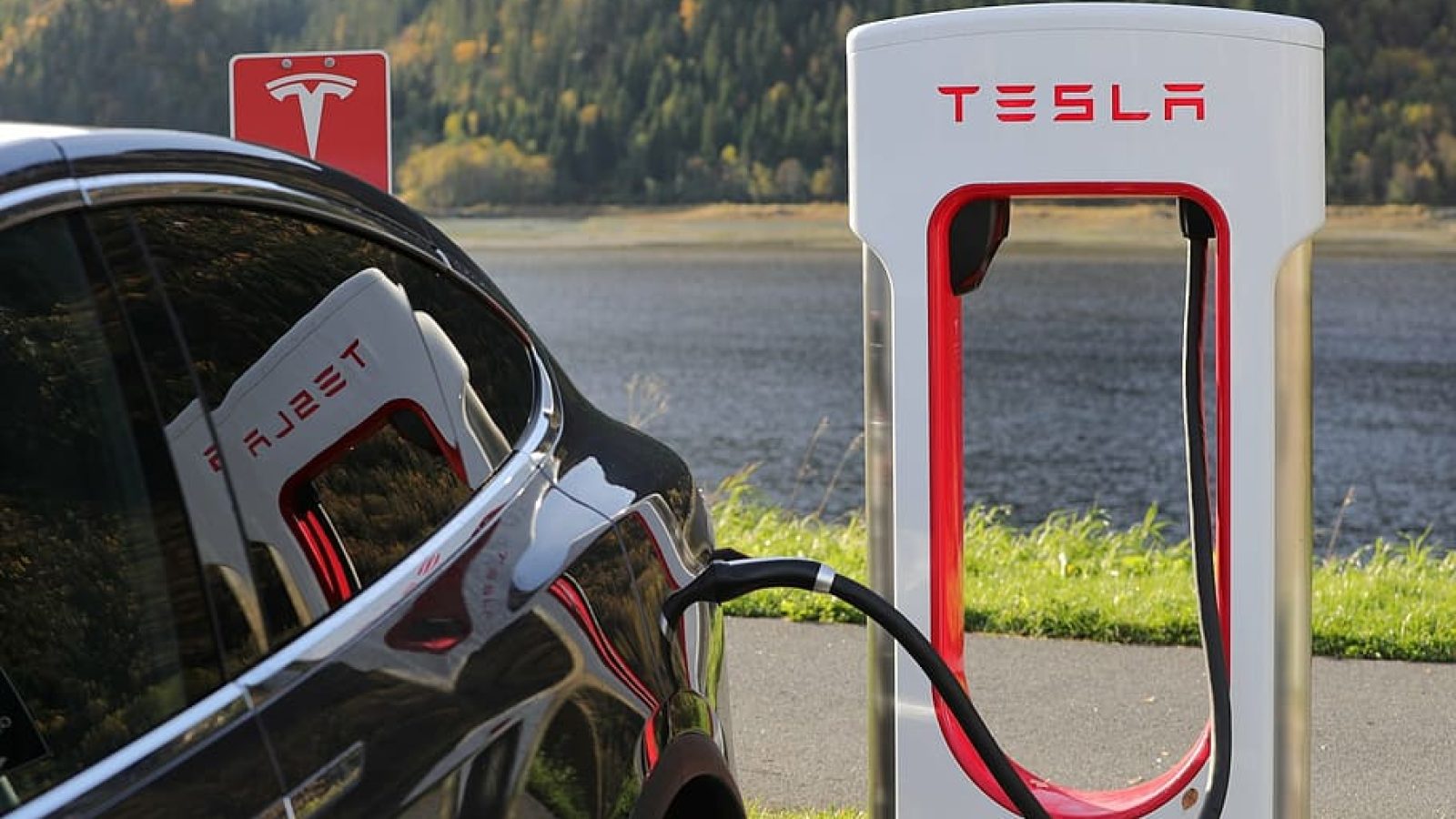Looks like the EV vehicle takes another hit.
For all those out there that pride themselves on being the proud owner of a Tesla for envirnomental reasons, this will really pop that bubble.
The sheer heaviness of these vehicles is what turns these cars into a walking – or driving- hypocrisy.
With them being usually 20% heavier than the normal gas using car, there comes with it side effects.
Are they 10x worse at polluting than an average car?
Nope, they’re 100x worse – no, I mean 1,000 times – no, sorry, they are….
1,850 times WORSE!
“.. most vehicle-related particulate matter comes from tire wear. Cars are heavy, and as their tires rub against the road.” #EV’s “weigh far more than gasoline-powered ones, so their tires degrade faster, as electric car buyers are learning.”@WSJopinionhttps://t.co/A4cQ2Oeok5 pic.twitter.com/uqk12bexwd
— Carl Quintanilla (@carlquintanilla) March 5, 2024
LifeSite reports:
A 2022 study found that electric vehicles (EVs) which left-leaning governments in Canada, the United States, and elsewhere are pushing on the population, pollute at a rate far higher than their gasoline or diesel-powered counterparts.
The 2022 study from the U.K.-based Emissions Analytics group found that during a 1,000 mile journey, EVs release 1,850 times more pollutants into the surrounding environment than gas-powered vehicles, due to the heavier weight which eats through tires.
While many think of emissions from exhaust, tire wear plays a significant role in emitting pollutants. The synthetic rubber used to create tires include certain chemicals that get released into the air, and because EVs are significantly heavier than conventional cars due to massive lithium batteries.
Overall, EVs weigh about 30 percent more than gas-powered vehicles, and cost thousands more to make and buy. These issues are in addition to the fact that they are not suitable in colder climates (such as Canada and the northern U.S.), offer poor range and long charging times (especially in cold weather), and have batteries that take tremendous resources to make and are hard to recycle.
Both the government of Canada under Prime Minister Justin Trudeau and the government of the United States under President Joe Biden are hoping to ban, or severely limit, the sale of new gasoline-powered cars after 2035 despite these deficiencies. The EU (European Union) also has an EV mandate in place for the same year.
Canadian Environment Minister Steven Guilbeault announced just before Christmas the “Electric Vehicle Availability Standard.” This is a plan that will mandate that all new cars and trucks by 2035 be electric, which would in effect ban the sale of new gasoline- or diesel-only powered vehicles after that year.
Not all Canadian provinces are on board the EV train, however.
In January, LifeSiteNews reported on how Alberta’s Minister of Energy criticized the federally funded Canadian Broadcasting Corporation (CBC) for publishing a report stating that electric cars are better able to handle cold weather than gas-powered ones, all at the same time an extreme cold snap gripped much of Western Canada and nearly caused Alberta’s power grid to collapse due to its increased reliance on so-called renewable energy.
Alberta Premier Danielle Smith has promised that she intends to fight with “everything” at her disposal what she called an “unconstitutional” new federal government EV mandate as well as a net-zero power generation, which if implemented would lead to guaranteed power outages.
ADVERTISEMENT
Electric Vehicles … Are they really worth it? They’re heavier than gas cars. That heavy car wears the tires down causing soot. There’s more particulate matter from electric cars than the gas powered.
Oops! EV’s ….. Are they really better? Maybe not.https://t.co/zX0kjlwNM6
— MAGA PATRIOT TGM (TERI) (@udreams30) March 5, 2024
New York Post adds:
Electric vehicles release more toxic particles into the atmosphere and are worse for the environment than their gas-powered counterparts, according to a resurfaced study.
The study, published by emissions data firm Emission Analytics, was released in 2022 but has attracted a wave of attention this week after being cited in a Wall Street Journal op-ed Sunday.
It found that brakes and tires on EVs release 1,850 times more particle pollution compared to modern tailpipes, which have “efficient” exhaust filters, bringing gas-powered vehicles’ emissions to new lows.
Today, most vehicle-related pollution comes from tire wear.
As heavy cars drive on light-duty tires — most often made with synthetic rubber made from crude oil and other fillers and additives — they deteriorate and release harmful chemicals into the air, according to Emission Analytics.
Looks like there are some in Germany that are protesting EVs, but going a bit too far:
In #Germany, eco-activists camped near a #Tesla factory set fire to a power station, leaving neighboring areas without electricity supply
About 100 activists have been camping in a forest near the German town of Grünheide, Brandenburg state, since Thursday. They are trying to… pic.twitter.com/yMkNHYyjkt
— NEXTA (@nexta_tv) March 5, 2024
I’ll confess. I once had an electric car, and it was awesome!
I just had to plug it in for a few hours, and it was ready to go. However, the AA batteries in the remote control had to be replaced often.
That seems to be the best use of electric cars: the toy form. RC vehicles that you only played with on your birthday or Christmas Day.




Join the conversation!
Please share your thoughts about this article below. We value your opinions, and would love to see you add to the discussion!